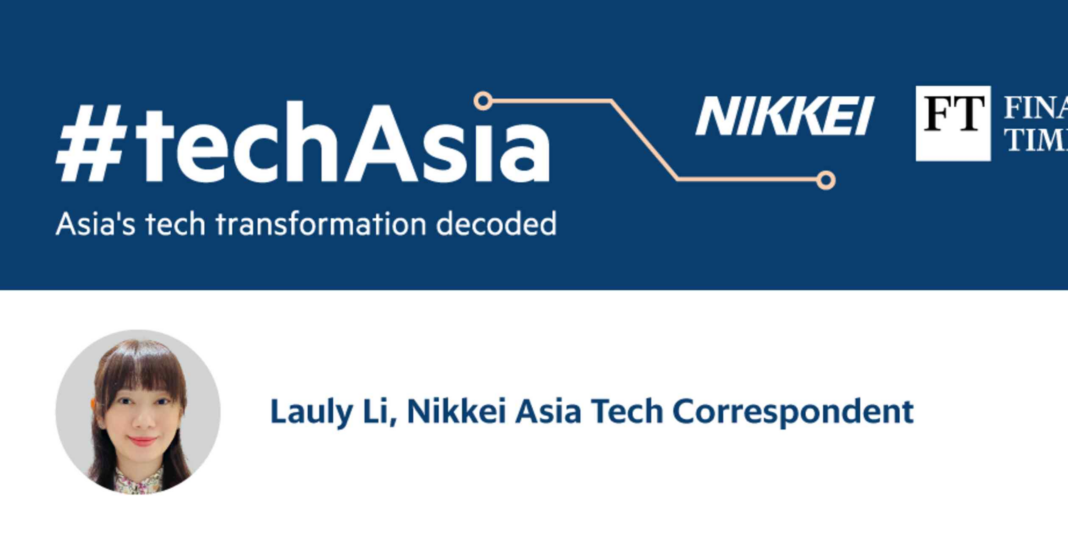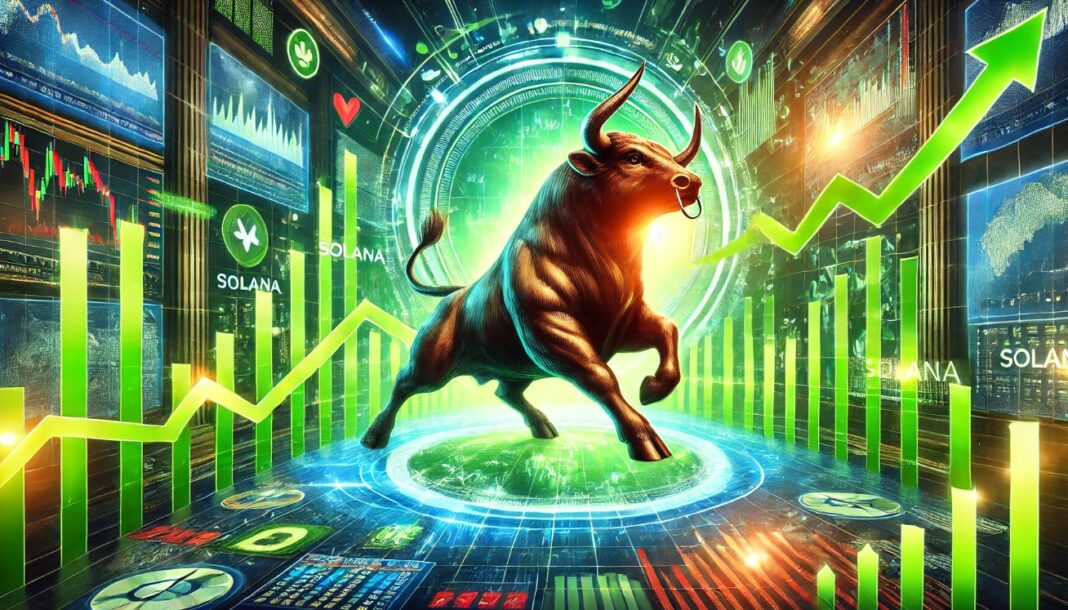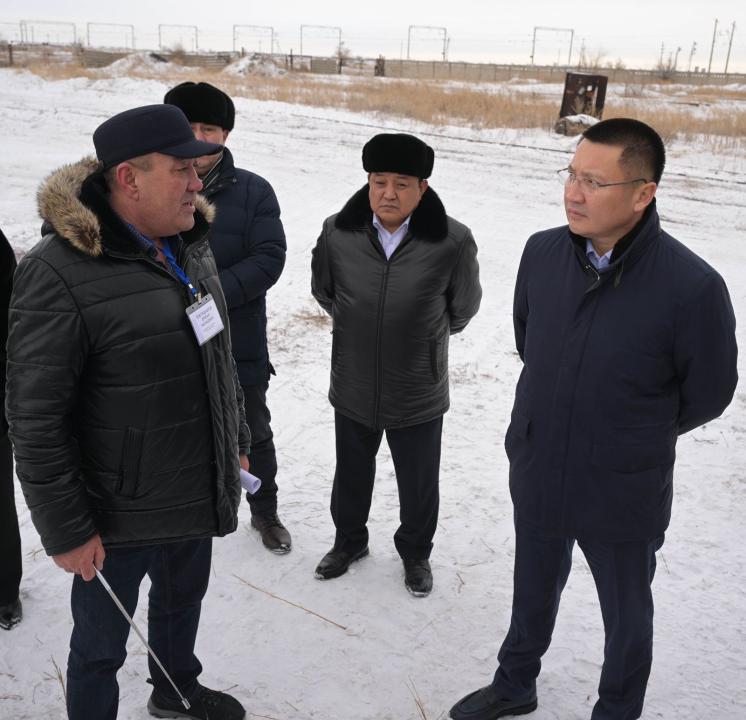Hi everyone! This is Lauly from Taipei. I hope 2025 has been kind to you so far.
I am writing this week’s newsletter having just finished attending my eighth year-end banquet hosted by Taiwanese tech suppliers since the middle of December — and I have three more still to go. The year-end banquet, or weiya in Mandarin, is a traditional ritual for tech suppliers in Taiwan, who host the events ahead of the Lunar New Year holidays to show their gratitude to their tens of thousands of employees. The banquets include performances by the most popular singers of the year, lucky draws and endless supplies of alcohol (the companies always prepare empty containers at the exits of the venue with a big label saying “puke barrel.”)
I have always attended these events with joy, as I could meet longtime industry friends, exchange the latest industry information (sometimes gossip), and scream with excitement just like all the employees did when watching the great performances. At Pegatron’s banquet this year, I found myself standing and dancing next to Vice Chairman Jason Cheng when famous Taiwanese band Accusefive were performing their hit songs on the stage, and I am pretty sure he was singing and dancing along, too. There was also an American company’s head of procurement in Taiwan standing on a chair and dancing happily at contract PC maker Compal’s year-end party.
But I attended this year’s events with much more mixed feelings about the year ahead than before. Apart from AI, especially AI servers, I have not yet heard any tech suppliers expressing optimism about other tech sectors, including smartphones and PCs, that used to be the pillars of the industry. And supply chain sources are telling me that even the outlook for AI servers has become less certain due to increasing geopolitical complexities.
“Watch out for the stock markets this year. The AI supply chain is going to face a lot of turbulence,” an executive with a server and graphic card distributor told me last night before I left a party.
The environment is certainly getting more volatile, especially after the Biden administration this week rolled out a flurry of export controls on semiconductors and AI data centers in its final attempts to curb China’s tech prowess before U.S. President-elect Donald Trump returns to the White House on Monday.
In fact, just as I was about to wrap up this week’s newsletter on Wednesday night and go to bed, my colleague Pak Yiu in New York pinged me and Annie Cheng Ting-Fang to let us know that the Biden administration made yet another announcement, this time aimed largely at TSMC and Samsung.
Nvidia and Apple supplier Quanta Vice Chairman C.C. Leung said to his employees: “I don’t know what in the world will happen after Jan. 20, but lately I’ve been thinking about mankind’s history [and] all these challenges, hardships, struggles with nature and fights between men. We still managed to overcome them and move forward. We should keep working hard and never give up!”
I think that is quite the spirit to hold on to for this year.
Making memories
China’s global market share for memory chips has surged from zero to 5% in just five years despite U.S. restrictions and is on course to climb to 10% this year, which would put pressure on global leaders Samsung and SK Hynix of South Korea and Micron of the U.S., Nikkei Asia’s Cheng Ting-Fang and Lauly Li write.
ChangXin Memory Technologies (CXMT), a Hefei-based supplier of dynamic random access memory (DRAM), is the major driver behind China’s inroads in this industry and it is also working on high-bandwidth memory (HBM) chips for AI computing. Washington-blacklisted companies Fujian Jinhua Integrated Circuit Co. (FJICC) and SwaySure are also making progress in DRAM.
DRAM is a vital component in every type of electronic device, but it is extremely sensitive to market demand as it is also considered a “commodity.” The presence of these players, while small, is still significant and can easily affect the market.
Musk to the rescue?
Officials in Beijing are discussing using billionaire Elon Musk as a broker in a potential sale of TikTok’s U.S. operations, just days before the Chinese-owned social media app faces a ban from Washington, write the Financial Times’ Madhumita Murgia and Zijing Wu.
The officials are hoping that Musk could help broker a deal that might prevent the platform from being forced to shut down, according to two people familiar with the talks. This includes Musk helping to persuade President-elect Donald Trump to avoid implementing a ban.
The discussions are “very preliminary and mostly brainstorming” at this stage, according to one of the people. They added that ByteDance and TikTok teams were still primarily focused on winning the legal battle with the U.S. government to stop the bill coming into effect.
The bill passed by Congress in April, which requires TikTok’s Beijing-based parent ByteDance to sell its stake in the app or face a ban because of security concerns, comes into effect on Sunday.
An earlier Bloomberg report suggested that Chinese officials were discussing a sale of TikTok to Musk, the owner of social media app X and a close confidant of Trump.
In response to a question of whether Chinese officials had discussed such a sale to Musk, the company said, “We can’t be expected to comment on pure fiction.”
Musk did not respond to a request for comment from the Financial Times.
In the home stretch
Apple is in the final stage of verifying its first “Made in America” cutting-edge processing chips from Taiwan Semiconductor Manufacturing Co.’s first advanced chip manufacturing facility in the U.S. The first batch of commercial mass-produced chips is expected as early as this quarter, according to this scoop by Nikkei Asia’s Cheng Ting-Fang. AMD and Nvidia are also running some wafer test production at TSMC’s facility in Arizona.
Successful commercial output would mark a significant victory for U.S. efforts to bring advanced semiconductor production back home from Asia.
TSMC has endured a longer-than-expected learning curve for the Arizona plant since announcing its intention to build the facility in May 2020, such as a labor crunch, an incomplete supply chain, cultural differences, higher costs and lengthy permitting processes. Several suppliers to TSMC and Intel had postponed plans to build chemical facilities nearby, but some progress has resumed now that TSMC’s plant is back on track.
Slowing the flow
China has been tightening its customs checks on exports by Apple and other American tech companies since December, hindering their attempts to increase production capacity in Southeast Asia and India, writes Nikkei Asia’s Lauly Li.
Citing Beijing’s newly introduced export controls on dual-use items and technologies, Chinese customs have been holding up some exports of materials and equipment for production use for days and even weeks, according to multiple sources with knowledge of the matter.
Southeast Asia and India have been the major beneficiaries of the supply chain diversification mega trend. American companies such as Apple, Microsoft, Google, Amazon, HP and Dell all have built up certain new production capacity outside of China since the trade war. U.S. President-elect Donald Trump’s threat to impose more tariffs on all Chinese goods is making such a shift even more urgent. However, these companies still rely on materials and equipment — either existing or newly made — exported from China to keep building up their new production lines elsewhere.
Suggested reads
1. Vietnam jails high-profile lawyer for 3 years over Facebook posts (Nikkei Asia)
2. US TikTok ‘refugees’ make surprise move to China’s ‘RedNote’ (FT)
3. Infineon to start up Thai power module fab in 2026 (Nikkei Asia)
4. Indian IT outsourcers look to Trump bump to revive fortunes (FT)
5. US imposes export controls on chips for AI to counter China (FT)
6. Japan earmarks $1bn in support for chip designers (Nikkei Asia)
7. Hong Kong crypto insurer plans foray into Japan amid Trump buzz (Nikkei Asia)
8. Malaysia expects surge of Chinese investment, economy minister says (FT)
9. Grab partners with BYD to expand EV fleets in Southeast Asia (Nikkei Asia)
10. Indonesia says $1bn offer from Apple not enough to lift iPhone 16 ban (FT)
For more great stories like this delivered to your inbox every week, sign up to our #techAsia newsletter. Current subscribers, click here to update your newsletters preferences.


